Posted on March 22nd, 2010 by Jaimie Schock
 The George Lucas Educational Foundation, which was created to help education catch up with the many technical advancements in how we interact with each other and the world, maintains a comprehensive website called Edutopia, which features resources and videos for teachers. It is designed to spread the word about ideal, interactive learning environments and enable others to adapt these successes locally. Edutopia contains an archive of continually updated best practices, from classroom tips to recommendations for district-wide change.
The George Lucas Educational Foundation, which was created to help education catch up with the many technical advancements in how we interact with each other and the world, maintains a comprehensive website called Edutopia, which features resources and videos for teachers. It is designed to spread the word about ideal, interactive learning environments and enable others to adapt these successes locally. Edutopia contains an archive of continually updated best practices, from classroom tips to recommendations for district-wide change.
Read More
Filed under: Web Resources | Comments Off on Resource: George Lucas Educational Foundation
Tags: Internet Resources, PBL, Project Based Learning, Resources for Teachers, Teacher Resources, Videos, Web Resources
Posted on March 18th, 2010 by ASEE
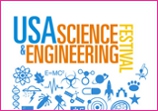
This competition is to create a Jingle for the USA Science & Engineering Festival. It will be heard and sung by hundreds of thousands of science enthusiasts across the country. Submission Deadline: March 31, 2010. Prize for the winning Jingle: $500.
Read More
Filed under: K-12 Outreach Programs | Comments Off on Competition: Compose a Science Festival Jingle
Tags: Competition, Competitions for Students, Contest, Contests, Videos
Posted on March 15th, 2010 by ASEE
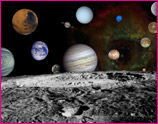
NASA’s Multimedia Gallery provides educators a wealth of supporting material, from an extensive image gallery — featuring current and historic NASA missions, the planets of the universe, and the latest material from the Hubble Space telescope –videos, podcasts, NASA television, blogs, and interactive features.
Read More
Filed under: Web Resources | Comments Off on Website: A World of Space from NASA
Tags: NASA, Photo Gallery, Space, Television show, Videos
Posted on March 15th, 2010 by ASEE
 NASA eClips™ are short educational video segments meant to inspire and engage students, helping them see real world connections. New video segments are produced weekly exploring current applications of science, technology, engineering and mathematics, or STEM, topics. The programs are produced for targeted audiences: K-5, 6-8, 9-12 and the general public.
NASA eClips™ are short educational video segments meant to inspire and engage students, helping them see real world connections. New video segments are produced weekly exploring current applications of science, technology, engineering and mathematics, or STEM, topics. The programs are produced for targeted audiences: K-5, 6-8, 9-12 and the general public.
Read More
Filed under: Web Resources | Comments Off on Videos: NASA eClips
Tags: Aerospace, Grades 6-8, Grades 9-12, Grades K-5, NASA, Videos
Posted on March 1st, 2010 by ASEE
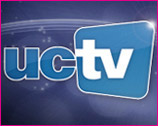
UCTV explores a broad spectrum of subjects of interest to a general audience, including engineering, science, education issues, health and medicine, public affairs, humanities, arts and music, and even gardening and agriculture. Programs range from documentaries, faculty lectures, cutting-edge research symposiums, artistic performances and more.
Read More
Filed under: Web Resources | Comments Off on Webcasts: UCTV Science and Engineering Programs
Tags: Grades 6-8, Grades 9-12, Podcasts, Videos, Web Resources
Posted on March 1st, 2010 by ASEE
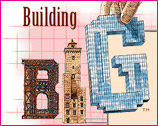
The PBS Bridge page, part of the 5-part television series and website, Build It Big, offers a number of great resources on spans, including: Bridge Basics, Forces Lab, Who Builds Big?, Bridge Webography, and the fun, interactive Bridge Challenge. See also the Educators Guide, with activities, resources, and planning ideas.
Read More
Filed under: Web Resources | Comments Off on Website: Build It Big – Bridges from PBS
Tags: Bridge building, Civil Engineering, Lesson Plans, PBS, Videos
Posted on February 22nd, 2010 by ASEE
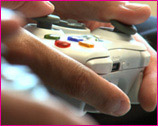 What do bicycles, footballs, and space shuttles have in common? Can you really learn while you are asleep? Why do some birds hop and others walk? And why do guys tend to enjoy video games more than women? These are just a few of the questions explored in the 2-minute audio and video podcasts of the science program A Moment of Science, produced at Indiana University, Bloomington, in cooperation with IU’s scientific community, and other scientists.
What do bicycles, footballs, and space shuttles have in common? Can you really learn while you are asleep? Why do some birds hop and others walk? And why do guys tend to enjoy video games more than women? These are just a few of the questions explored in the 2-minute audio and video podcasts of the science program A Moment of Science, produced at Indiana University, Bloomington, in cooperation with IU’s scientific community, and other scientists.
Read More
Filed under: Web Resources | Comments Off on Podcasts: A Moment of Science
Tags: Audio podcasts, Science programs, Videos, Web Resources
Posted on February 17th, 2010 by ASEE
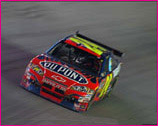 The Science of Speed program, produced for the National Science Foundation (NSF), explains the scientific principles so essential to the NASCAR experience. Through 12 videos ranging in topic from “firesuits” to “friction and heat” and “load transfer,” viewers learn how science and engineering makes sports cars powerful, agile, fast and safe — and how these same principles affect cars on the street.
The Science of Speed program, produced for the National Science Foundation (NSF), explains the scientific principles so essential to the NASCAR experience. Through 12 videos ranging in topic from “firesuits” to “friction and heat” and “load transfer,” viewers learn how science and engineering makes sports cars powerful, agile, fast and safe — and how these same principles affect cars on the street.
Read More
Filed under: Web Resources | Comments Off on Video: NASCAR, Science, and Engineering
Tags: NASCAR, National Science Foundation, Videos
Posted on February 8th, 2010 by ASEE

The free site Lessonopoly has created student activities and lesson plans to support the video series, Science of the Olympic Winter Games, created by NBC Learn and the National Science Foundation. Featuring exclusive footage from NBC Sports and contributions from Olympic athletes and NSF scientists, the series aims to help teach students concepts like friction and angular momentum.
Read More
Filed under: Web Resources | Comments Off on Website: Olympics Lesson Plans
Tags: Lesson Plans, National Science Foundation, Olympics, Videos, Web Resources
 The George Lucas Educational Foundation, which was created to help education catch up with the many technical advancements in how we interact with each other and the world, maintains a comprehensive website called Edutopia, which features resources and videos for teachers. It is designed to spread the word about ideal, interactive learning environments and enable others to adapt these successes locally. Edutopia contains an archive of continually updated best practices, from classroom tips to recommendations for district-wide change.
The George Lucas Educational Foundation, which was created to help education catch up with the many technical advancements in how we interact with each other and the world, maintains a comprehensive website called Edutopia, which features resources and videos for teachers. It is designed to spread the word about ideal, interactive learning environments and enable others to adapt these successes locally. Edutopia contains an archive of continually updated best practices, from classroom tips to recommendations for district-wide change.













 What do bicycles, footballs, and space shuttles have in common? Can you really learn while you are asleep? Why do some birds hop and others walk? And why do guys tend to enjoy video games more than women? These are just a few of the questions explored in the 2-minute audio and video podcasts of the science program A Moment of Science, produced at Indiana University, Bloomington, in cooperation with IU’s scientific community, and other scientists.
What do bicycles, footballs, and space shuttles have in common? Can you really learn while you are asleep? Why do some birds hop and others walk? And why do guys tend to enjoy video games more than women? These are just a few of the questions explored in the 2-minute audio and video podcasts of the science program A Moment of Science, produced at Indiana University, Bloomington, in cooperation with IU’s scientific community, and other scientists. The Science of Speed program, produced for the National Science Foundation (NSF), explains the scientific principles so essential to the NASCAR experience. Through 12 videos ranging in topic from “firesuits” to “friction and heat” and “load transfer,” viewers learn how science and engineering makes sports cars powerful, agile, fast and safe — and how these same principles affect cars on the street.
The Science of Speed program, produced for the National Science Foundation (NSF), explains the scientific principles so essential to the NASCAR experience. Through 12 videos ranging in topic from “firesuits” to “friction and heat” and “load transfer,” viewers learn how science and engineering makes sports cars powerful, agile, fast and safe — and how these same principles affect cars on the street.